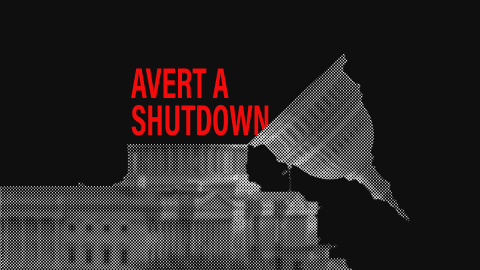
Maryknoll Office for Global Concerns was one of 680 civic organizations and faith-based groups to write to Congress, House and Senate, to ask that they "fulfill Congress’ most basic duty: to keep the government running." This letter comes amid increasing likelihood of a government shutdown. The letter highlights the urgency of covering the functions of government that will be thrown into chaos with a shutdown. Read the full letter as a PDF
September 12, 2023
Dear Senator/Representative:
The 680 undersigned organizations urge you to fulfill Congress’ most basic duty: to keep the government running. Congress must pass a clean bipartisan, bicameral continuing resolution (CR) including emergency funding that supports current services and addresses urgent needs and is free of poison pill policy riders that are harmful and irrelevant to the functions of government. Such a CR will ensure that federal programs continue to serve essential needs while Congress works in good faith to finish FY24 funding legislation needed to provide for a robust, stable economy and a secure nation by sufficiently supporting the vital services that help our communities thrive.
Shutdowns harm our nation’s overall economy, the financial security of individuals and families, government efficiency, and the public’s access to needed services. A shutdown would put the nation's economy at risk, delay or interrupt services to millions, and disrupt the jobs of over a million workers, making it harder for people to put food on the table, a roof over their heads, and stay safe and healthy. A shutdown would make vulnerable communities including people of color more at risk and result in their disproportionate harm. For those concerned about government waste, shutdowns, especially protracted shutdowns, could cost taxpayers billions of dollars even while basic government functions that taxpayers need experience interruptions - whether public health services during flu season, air safety and travel needs, food for children and families or protecting our communities’ safety.
Looking ahead, it is not enough to simply stave off a shutdown. Congress must consider and address the nation’s urgent funding needs by reaching an agreement on final FY 24 appropriations legislation. Despite the budget levels set in the Fiscal Responsibility Act of 2023, which in itself presents funding challenges for many programs and services on which we all rely, the House has drafted FY24 budget bills that violate the spirit of the agreement by including draconian cuts to non-defense discretionary spending, hundreds of poison pill policy riders, and significant recissions that, for example, would undermine our nation’s fight against climate change and the ability of the IRS to hold wealthy tax cheats accountable.
The Senate Appropriations Committee has passed 12 bipartisan appropriations bills that are consistent with the bi-partisan spirit of the agreement negotiated by Speaker McCarthy and President Biden. We thank Senate Appropriations Committee Chair Patty Murray and Vice Chair Susan Collins for recognizing the need to add $13.7 billion in emergency spending, exempt from the limits set in the debt-limit deal. This is a critical first step to recognize that the funding caps are unrealistic and harmful and that in the future, the appropriations process should start from what agencies and our communities actually require, not arbitrary numbers that are untethered from the realities of what the nation needs.
While nondefense appropriations are a small part of the federal budget, less than one-sixth, they fund a wide range of important programs and services that make America run. Examples include: assistance with housing and child care for low-income families, rural development, support for education and job training, scientific and medical research, medical care, veterans’ services, aging services, environmental protections so we can breathe clean air and drink clean water, substance use disorder and mental health treatment, infrastructure investments including sewage treatment, public transportation systems and safe roads, flood control and navigation improvements, diplomacy, humanitarian aid and development, courts and reentry programs, public safety programs, assistance for small businesses, and many other programs to strengthen our communities.
Federal investments make our states, counties, cities, and towns run efficiently and serve public needs. States rely on federal investments for more than one-third of their budgets, to ensure the availability of essential services to workers, retirees, people with disabilities, and families. State and local governments are already facing cliffs as significant pandemic aid ends this fiscal year while urgent needs persist. Additional discretionary cuts coupled with this cliff would be deeply harmful.
In summary, our country needs Congress to push past the chaos and focus on the basics: keeping the government running and passing funding bills that place the needs of Americans and the public interest first.
See the list of signatories here.
